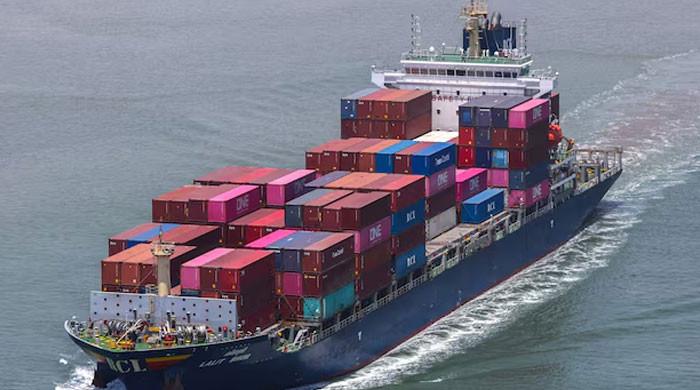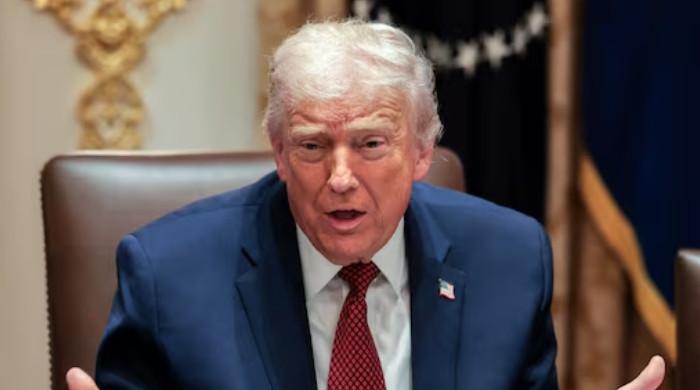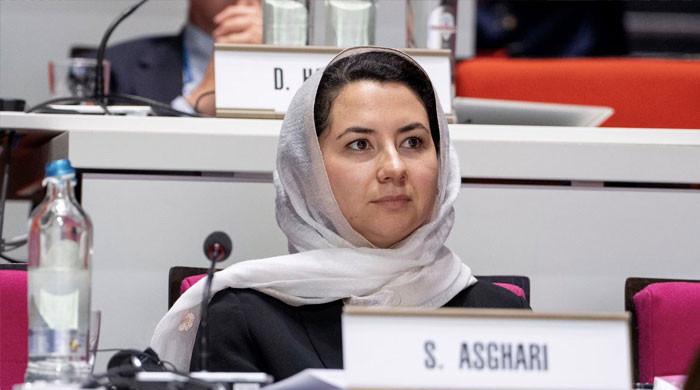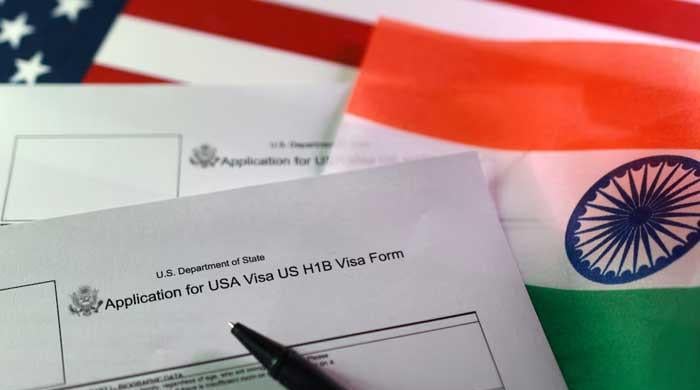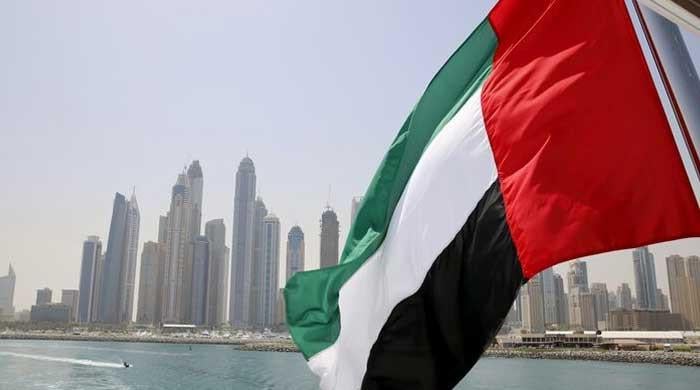Fighting in Sudan resurges as UN envoy says ceasefire partly holding
SAF and paramilitary RSF agreed to 72-hour ceasefire after negotiations mediated by US and Saudi Arabia
April 26, 2023
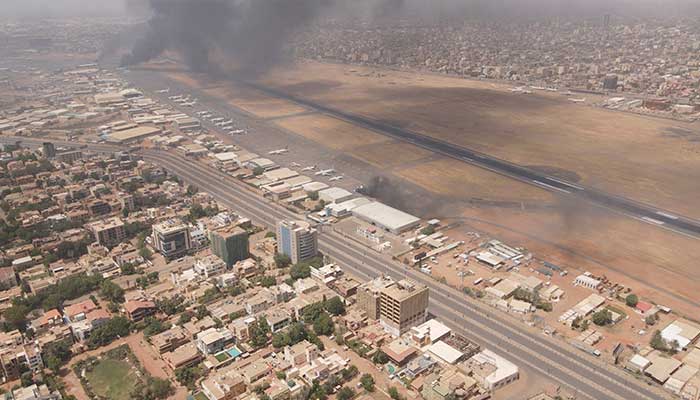
- UN envoy says there was no sign of two sides' readiness for talks.
- Gunfire, explosions could be heard in Omdurman despite brief truce.
- Foreign governments evacuate their nationals.
KHARTOUM: Fighting flared anew in Sudan late on Tuesday despite a ceasefire declaration by the warring factions, as a UN envoy said the truce was partially holding even though there was no sign that the two sides were ready for serious talks.
The Sudan Armed Forces (SAF) and paramilitary Rapid Support Forces (RSF) agreed to a 72-hour ceasefire beginning on Tuesday after negotiations mediated by the US and Saudi Arabia.
But gunfire and explosions could be heard after nightfall in Omdurman, one of Khartoum's sister cities on the Nile River where the army used drones to target RSF positions, a Reuters reporter said.
The army also used drones to try to drive fighters back from a fuel refinery in Bahri, the third city at the confluence of the Blue Nile and White Nile.
UN special envoy on Sudan Volker Perthes told the UN Security Council on Tuesday that the ceasefire "seems to be holding in some parts so far."
But he said that neither party showed readiness to "seriously negotiate, suggesting that both think that securing a military victory over the other is possible."
"This is a miscalculation," Perthes said, adding that Khartoum's airport was operational but the tarmac damaged.
Since Sudan erupted in warfare between the army and the RSF on April 15, derailing a transition to civilian democracy, the paramilitaries have embedded themselves in residential districts and the army has sought to target them from the air.
The fighting has turned residential areas into battlefields. Air strikes and artillery have killed at least 459 people, wounded over 4,000, destroyed hospitals and limited food distribution in a nation where a third of its 46 million people rely on food aid.
A projectile hit Al-Roumi medical centre in Omdurman on Tuesday and exploded inside the facility, injuring 13 people, a hospital official said.
Prisoners released
In a further sign of deteriorating security, former Sudanese Minister Ahmed Haroun, who is wanted by the International Criminal Court on charges of war crimes and crimes against humanity in Darfur, said he and other officials were allowed to leave Kober prison.
Following reports of a prison break in recent days, Haroun said that conditions at Kober had deteriorated badly. A protester imprisoned there said in a taped statement posted online on Sunday that prisoners had been let go after a week with no water or food.
Haroun and the other released officials served under ex-president Omar al-Bashir who came to power in a 1989 military coup and was ousted in a popular uprising in 2019. The ICC in the Hague has accused Haroun of organising militias to attack civilians in a genocide in Darfur in 2003 and 2004. The whereabouts of Bashir were not immediately clear.
Separately, the World Health Organization (WHO) said one of the warring parties took control of a national health facility in Khartoum and expressed concern about potential biological hazards from measles and cholera pathogens for vaccinations stored there.
An exodus of embassies and aid workers from Africa's third-largest country has raised fears that civilians who remain will be in greater danger if the shaky three-day truce deal, which expires on Thursday, does not hold.
US President Joe Biden's national security team is continuing to talk to Sudan's rival military leaders to end fighting and provide humanitarian aid, a White House spokesperson said on Tuesday.
The fighting has paralysed hospitals and other essential services, and left many people stranded in their homes with dwindling supplies of food and water.
With bodies scattered in the streets, international aid group Medecins sans Frontieres (MSF) said it had been unable to get fresh supplies or personnel into Sudan.
The UN humanitarian office (OCHA) said shortages of food, water, medicines and fuel were becoming "extremely acute", prices were surging and it had cut back operations for safety reasons.
The UN refugee agency forecast that hundreds of thousands of people might flee into neighbouring countries.
'Why is the world abandoning us'
As foreign governments evacuated their nationals, those with nowhere to go said they felt forsaken.
"Why is the world abandoning us at a time of war?" said Sumaya Yassin, 27, accusing foreign powers of being selfish.
Since the fighting erupted, tens of thousands have left for neighbouring Chad, Egypt, Ethiopia and South Sudan.
With civilians leaving Khartoum in cars and buses, the streets of one of Africa's biggest metropolitan areas were largely emptied of ordinary daily life. Those still in the city huddled at home while fighters roamed outside.
“There is nothing left in stores, no water, no food. People have started to go out armed, with axes, with sticks," French journalist Augustine Passilly said by phone as she tried to cross the border into Egypt.




